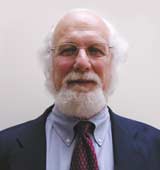|
Executive Interviews: Interview with Michael Brimm on Managing Complexity
August 2008
-
By Dr. Nagendra V Chowdary
 Prof. Michael Brimm
Prof. Michael Brimm Prof. Michael Brimm is Emeritus Professor of Organization and Management at INSEAD. 
What is the importance of
networks and hierarchies in
managing complexities in global
corporations? You have made a
distinction between fishing nets and
safety nets as far as networks are
concerned. What are they and what
is their significance for managing
complexities in global organizations?
Much of the activities which I have
described in project teams and
training is designed to develop
effective networks that work
alongside the formal structures.
These networks increase
effectiveness greatly; but alas, they are
also some of the sources of
complexity.
|
|
Unless they are accepted
and understood, these informal
channels of help, advice and support
will be perceived as threats, overlays
and redundant forms of interaction.
The challenge for leaders is to
develop the understanding and
awareness of networks so that these
can be effectively managed and
designed to the purposes of the unit
or organization. Thus, the choice of
members of a project team should be
guided not only by the competencies
that individuals bring to the task, but
also their access to implement work
and the desirability of using this team
to build a new functioning network
that will provide future benefit. This,
then justifies the investment of time
and resources to launch and build the
network as part of the project. What is the role of business
schools in preparing better
managers for managing
complexities?
As noted above, business schools
need to continue to provoke thought
and provide frameworks that help
people learn rather than forcing
formulas which will be obsolete, in
some cases well before the student
graduates. More experience-based
work that immerses individuals into
the organizational complexity with
real work activity is the only
prescription I can see. This is less
innovation than looking to past
practices and renewing them into the
current context. For example,
traditionally French schools have
required a "stage" where students
worked in organizations. University
of Michigan uses "consulting teams"
to address real business issues
around the world. Conventional
classroom will allow some level of
reflection, but like in the development
of a good tennis player, getting out on
the court with a good coach is
essential. What do you think are going to be
the characteristics of a global
corporation in the next 10-15 years?
Would they be drastically different
from the current global
corporations? What definite changes
do you foresee?
I will sidestep this one. If I had been
asked this question 15 years ago, I
would not have been able to imagine
the impact of change and technology
on today's organizations. As I have
argued that the change rate is
accelerating, I would be foolish to
even hazard a guess.
1.
Managing the Global Supply Chain Case Study
2. ICMR
Case Collection
3.
Case Study Volumes
|
The Interview was conducted by Dr. Nagendra V Chowdary, Consulting Editor, Effective
Executive and Dean, IBSCDC, Hyderabad. This Interview was originally published in Effective Executive, IUP, August 2008. Copyright © August 2008, IBSCDC
No part of this publication may be copied, reproduced or distributed, stored in a retrieval
system, used in a spreadsheet, or transmitted in any form or medium electronic,
mechanical, photocopying, recording, or otherwise without the permission of IBSCDC. |
